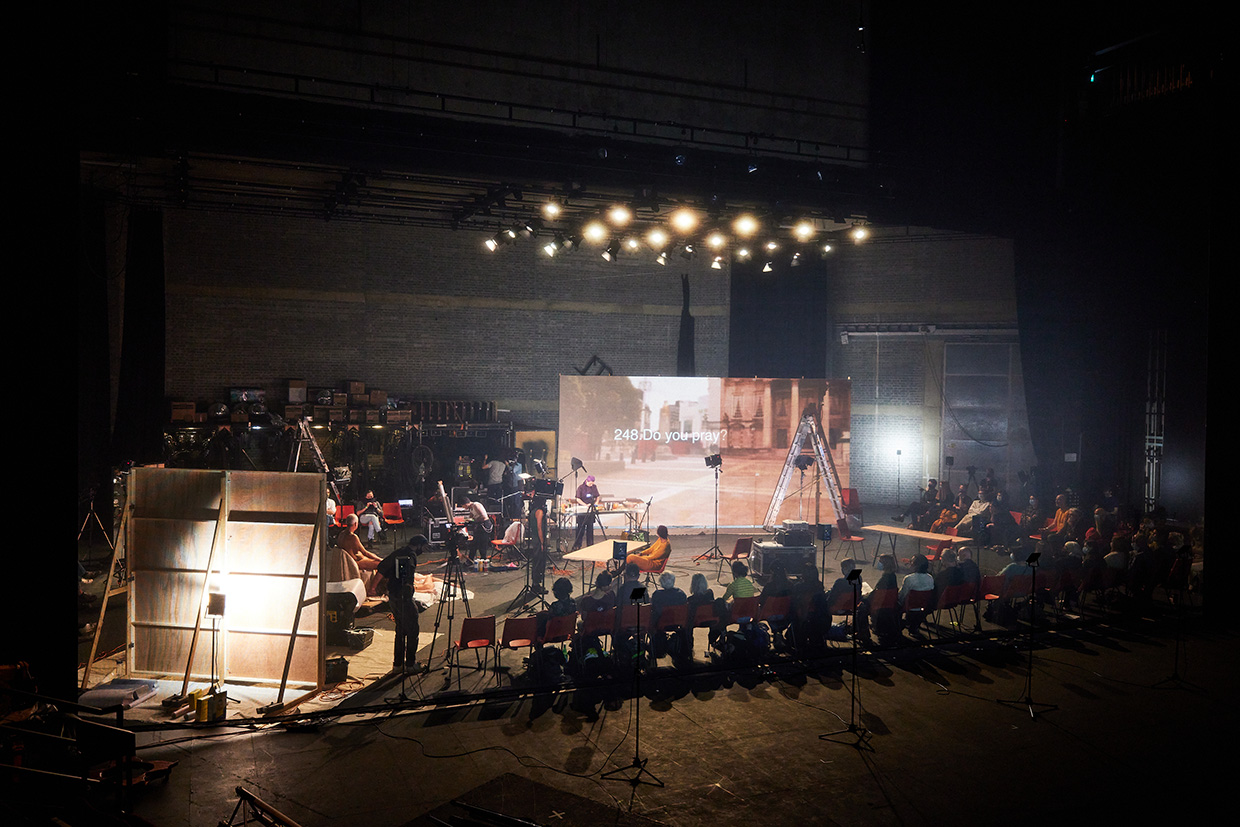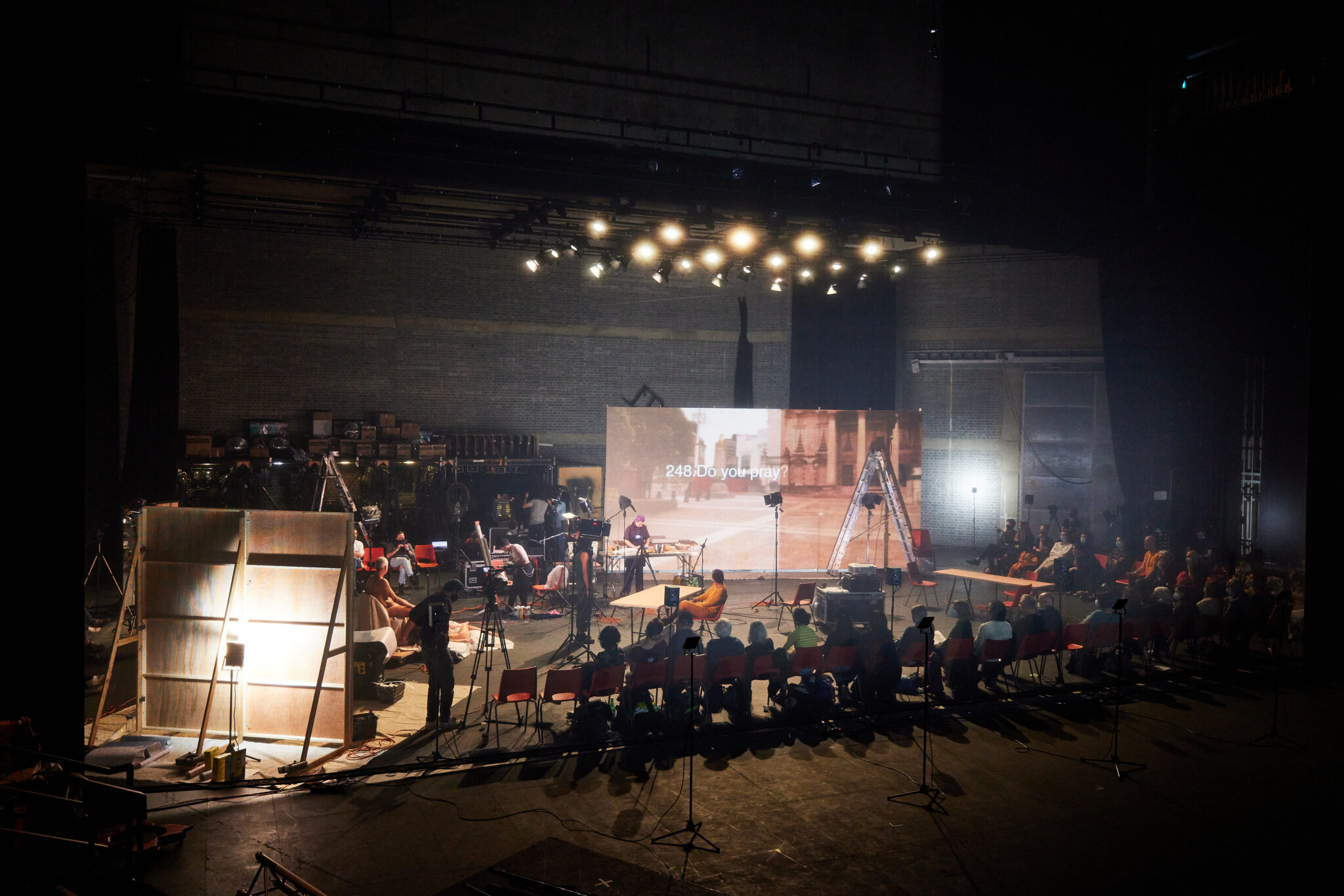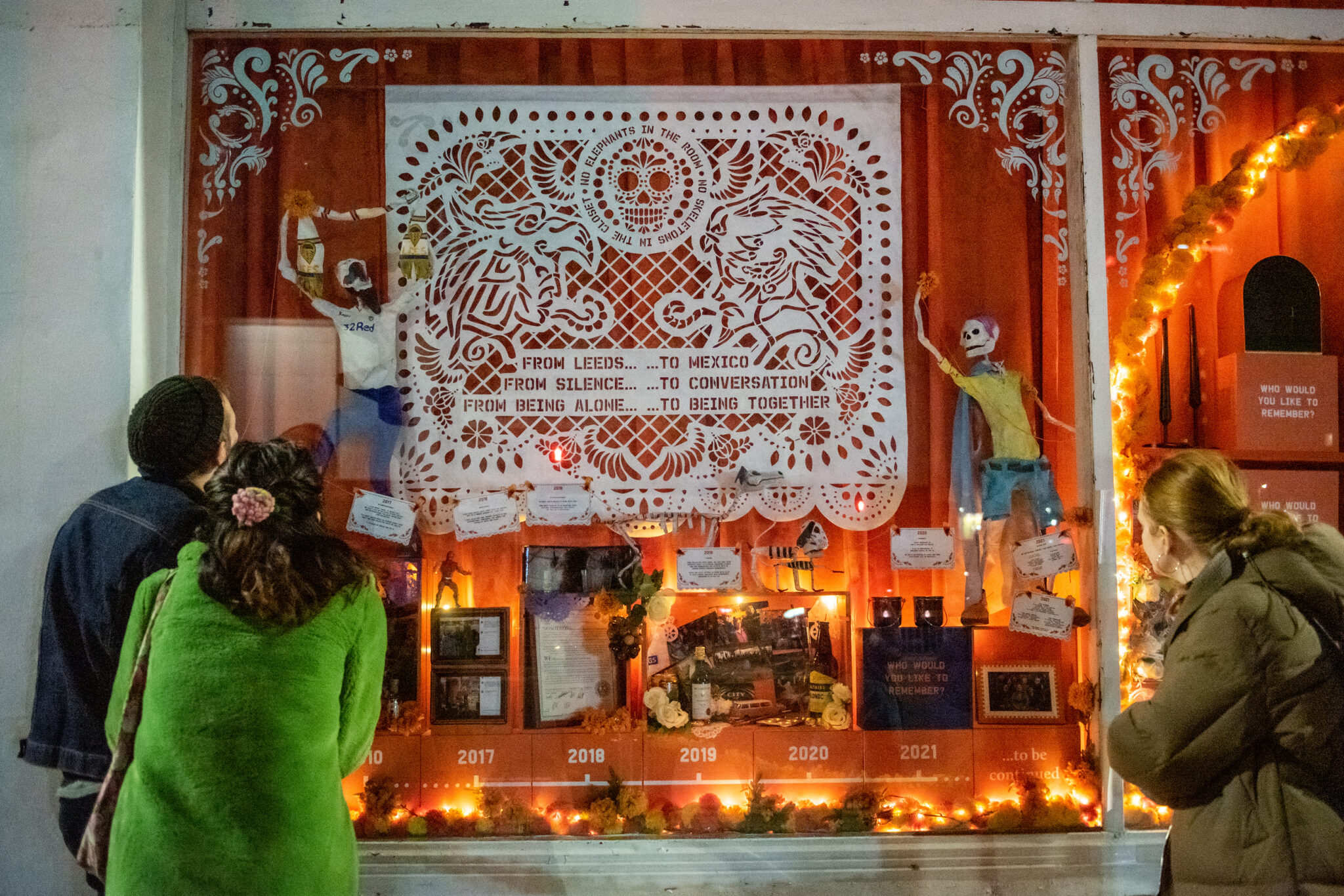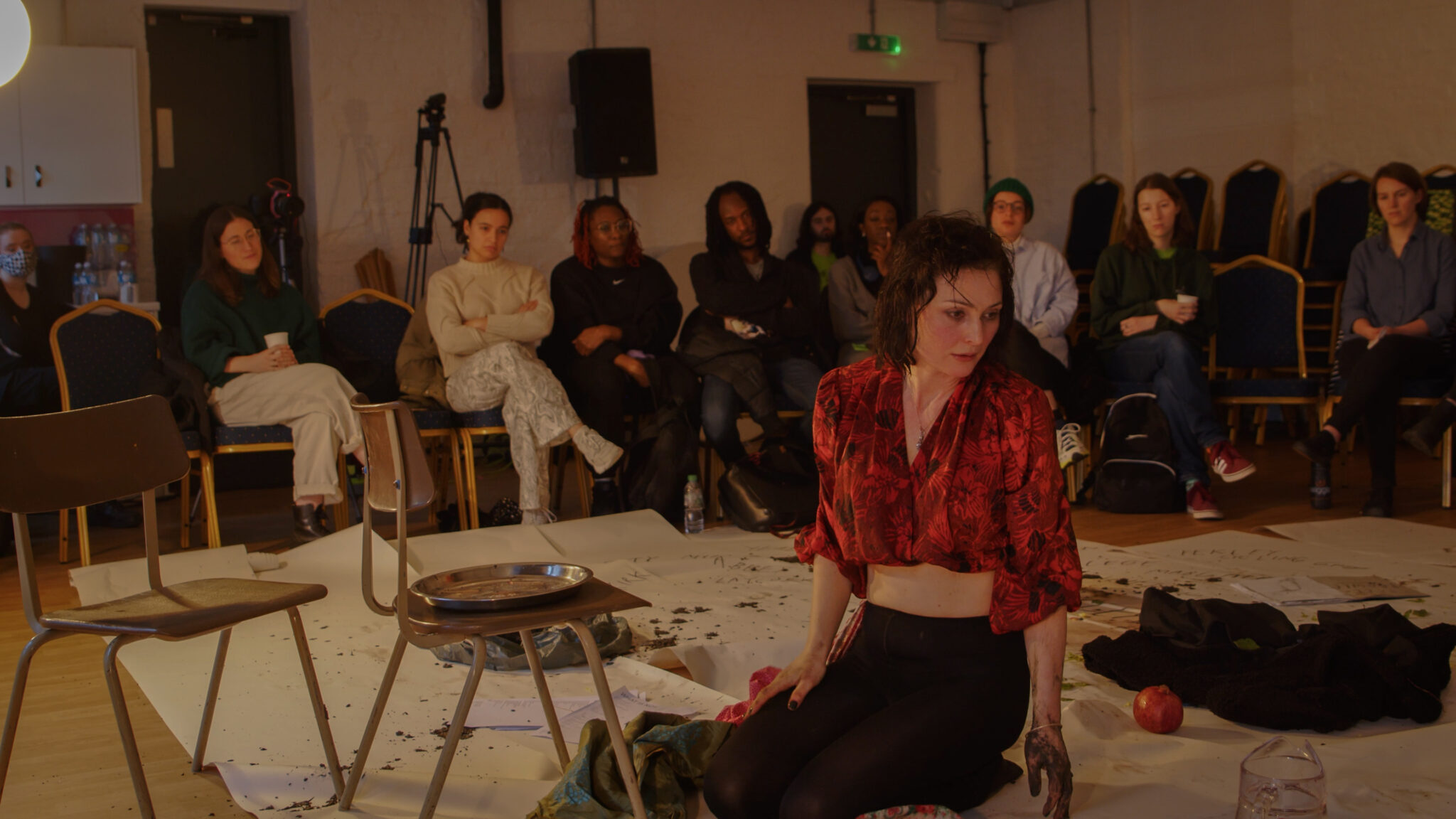
Realising an Extended Festival
Here at Transform, we are four months into realising an extended festival, with 6 weeks to go until Transform 21-22 culminates. At the start of this journey, we set out to think differently about what a festival can look and feel like in this moment. In many ways this was born out of necessity. As a result of the pandemic, any sense of being able to deliver the shape of festival we ordinarily would felt unreachable. Funding timescales and guidelines, border closures, a reduced team, and the capacity for artists to create in anything like the conditions needed on a particular timescale, compromised all our previous plans. The pandemic shifted whatever codes and norms the cultural sector had. For us it created an opportunity, out of necessity but also possibility, to think differently about the shape of the festival, to question and experiment with the very nature of festival itself.
Reflecting back on the last 6 months, it feels like the festival and our team has had to porously shapeshift based on the season and project, and the needs and nature of the pandemic.
Back in October, it felt heady and surreal to be realising our first public events since 2019. Gathering together festival partners, artists and our immediate community at The Tetley for our welcome event felt like necessary air, and made me realise how much I had missed creating spaces for others to connect, and to connect with others. A couple days later, it felt almost unbelievable to be premiering the extraordinary ’12 Last Songs’ on the Quarry Stage at Leeds Playhouse. Back in the Autumn, getting a one or two person show on its feet felt like a triumph for any performance presenter – but this was on a completely different scale. 12 hours. 32 people from across the city. A large creative and production team. A layered durational structure. ’12 Last Songs’ would be a feat to realise at any time, not least during a pandemic. Everything about the production felt somewhat implausible. The fact that we were able to tempt the exceptional Quarantine, who have a strong connection to Leeds, back to the city to make and premiere this work with us. The fact that we were able to access such a vast and technically equipped space for such a duration, felt like a triumph. The fact that over 32 people across Leeds – including Barry the plumber, Orange the artist, Rev. Heston, Hailey the dog groomer and Luna her dog, Oscar the body builder, and Greg the drone pilot, answered our calls in the first place and then agreed to spend an hour or so on stage that day. What we created that day felt like an extraordinary feat, for extraordinary times. ’12 Last Songs’ will continue to be toured by Quarantine, and will be at Brighton Festival this May. But never again will it be created in the same way it was in Leeds that day.

Around the corner from ’12 Last Songs’ we joined up with Leeds based company The Grief Series and Mexico based collective Zion Collective to launch ‘The Ofrenda’ at CLAY: Centre for Live Art Yorkshire. ‘The Ofrenda’ is a participatory invitation to share memories and photos of lost loved ones, an installation that can be engaged with at any time of day or night on Regent Street in Leeds, and another marker in a long-standing collaboration between The Grief Series and Zion Collective. The connection with Transform came from a conversation Ellie Harrison of The Grief Series and I started way back at the start of the pandemic, motivated by Transform’s Creative Europe network Festivals of the Future. During the initial chaos of cancellations and lost opportunities, Transform and our festival partners came together around a shared commissioning project motivated by the provocation ‘what is present in the absence?’. At that point in time, there felt like so much absence; lost opportunities, lost plans, lost connections and encounters. Through Festivals of the Future we wanted to understand the ways we were connected now, even if we could no longer share the same physical space. How might we feel closer to someone when they are far away? How can you be present without being physically present? When thinking about these questions, it was impossible not to make the connection with ‘The Ofrenda’ and the transatlantic connection between The Grief Series and Zion.

Following these events, the deeper we got into winter, the more sobering things felt as cases increased and restrictions tightened. Looking ahead to Spring felt daunting. Yet again, we were forced to consider alternative scenarios, if what we had planned from January turned out to not be feasible.
However, as we moved into the New Year, we started to feel optimistic, particularly when Martha Kiss Perone landed safely in the UK from São Paulo. Martha, along with Manchester based artist Lowri Evans, are two artists we got to know when we brought ‘When It Breaks It Burns’ by Brazilian group coletivA to Transform 19. Alongside Martha and Lowri’s work with coletivA, they have a longstanding collaboration together and have made a number of performances in Brazil exploring unruly women in history and fiction – from the iconic Rosa Luxumberg in ‘Rózà’ to the rebellious mythical figure Lilith in ‘Revolta Lilith’. Our invitation to Martha and Lowri was focused on reigniting their work together, across a month-long ‘wild residency’ across Yorkshire. Their focus became discovering connections with women from all walks of life across the region. Their time was spent out and about in Leeds but also in the natural surroundings of the countryside beyond the city – a space that Transform has yet to creatively respond to. The residency felt like a distinctive proposition for us, a different way of working with artists, slower and more extended, reaching out beyond the confines of our urban centre to stretch more widely across Yorkshire. The results of their wild residency will be shared through a short documentary in the coming months. We’re also now in the process of piecing together what the next steps will be for ‘Linda Maestra (Beautiful Teacher)’ and our collaboration with Lowri and Martha, for Transform 23.

The question I seem to get asked a lot at the moment is whether we will continue with an extended festival model in the future. Honestly speaking, creating an extended festival has been an endurance test and I definitely favour a more focused festival model. The space and time between projects to reflect and regather has been refreshing, but is compromised by being in a constant delivery cycle. Whilst to me the pace and structure of this way of working feels more akin to venue working, for an organisation like Transform we don’t come with anywhere near that same infrastructure and being on a constant drive of preparation, delivery, announcements, can be a lot. It feels important to be transparent about the toll an extended festival takes, but at the same time there’s a whole bunch of learning I hope we can draw upon and take forward to future editions. It’s been particularly inspiring to think differently about how international collaborations can happen, and to more robustly consider access, care and well-being in a festival environment. Transform 21-22 has definitely kickstarted different ways of thinking that we can take forward to our festivals in 2023 and 2025.
For now, the final wave of Transform 21-22 is fast approaching. It’s the busiest point in our extended festival and should feel like a real culmination of what we’ve been thinking about and working on for the last year. It feels exhilarating to be able to present stunning international work by the likes of Jaha Koo, Nadia Beugré and Amanda Piña, in venues and unusual sites in the city, literally years after we were last able to present international work. At the same time, an incredible range of artists and creatives, including Jamal Gerald, Sable Radio, Lua Bairstow and Rachel Mars have bravely responded to the times we are in, rethinking what performance, party and gatherings can feel like in this moment. Whether you join us online, in a theatre, a club, or on top of a multi-storey car park – we can’t wait to gather with you and these brave and visionary artists – and to celebrate the culmination of Transform 21-22.
Amy x